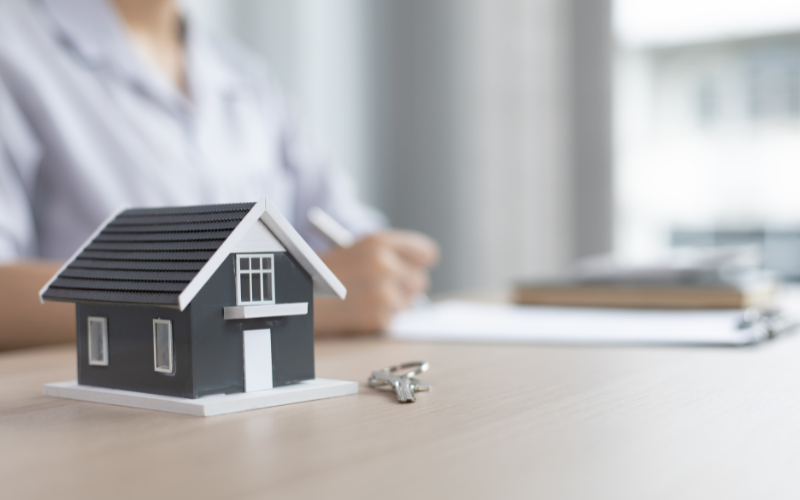Conventional wisdom says you should live in your home for five to seven years.
But where does that number even come from? For a long time, many of us have believed this to be the common answer to how long we should live in a home before selling it. And, few of us have ever wondered where it came from.
Today, I’m going to answer how long you should live in a home before selling it
The short answer (rule of thumb): at least a few years; probably about five.
The longer answer (which we explain): there really is no set time. It’s not about time spent in your home. It’s about your equity position and minimizing taxes.
Your Equity Position
At the end of the day, whether or not you should sell boils down to your equity position. Your equity is defined as the money leftover after paying your mortgage off.
For example, if your home is worth $250,000 and your mortgage balance is $175,000, then your equity position is $75,000, or $250,000 – $175,000.
In some markets, it could take you years before you build up an enough equity in your home to sell. In other markets, it could take as little as a year.
If you buy a home and have a mortgage balance of $200,000 and next year, your home’s value goes up by 20 percent or to a value of $240,000, then it might make sense to sell. Or, at least you have the ability to do so.
Don’t think 20 percent growth is possible? We saw those growth rates in the Lansing real estate market in 2017. In January of 2017, the median home value was about $120,000. By the end of the year, worth over $145,000.

Let’s look at two major factors that will affect your equity. The first, is the market. As your home’s value increases, you build up more equity. As your home’s value decreases, you lose equity. So, depending on when you buy, will affect how long you may need to live in a home before you sell it.

In an upmarket, where home values are increasing, you could probably get away with selling before the conventional five to seven year recommendation. If you’re buying in a down market, you may be stuck in the home for some time.
They say the market turns around every seven years. Since most of us buy a home in the middle of an up market, seven years allows us to sell our home with a nice equity position. Hence, the seven year recommendation.
The second factor that will affect your equity position is your mortgage balance. The more payments you make, the better your equity position is likely to be — assuming you don’t refinance.
In the first few years of a mortgage, most of your payments will go to interest. But around year five, more of it starts to go to the principal balance. This will allow you to build more equity position.
Take a look a the amortization chart if I had a mortgage of $300,000 at the start of May 2019. By the end of 2024, my balance is $272,816. This would give me about a 10 percent equity position (assuming my home was still worth $300,000).

How Much Equity Is Enough?
So how much equity do you need? You will want to have enough equity to pay off your mortgage balance and your closing costs, and still have some money leftover to recoup the down payment you made on the home and some of the payments.
To determine how much equity you need, add up the costs to sell a home. For conservative purposes, I generally recommend assuming 10 percent. This will cover you for repairs, real estate fees, transfer taxes, and if a buyer asks you to pay closing costs.
Next, figure out the down payment you made on your home. For some of you, this might be 3.5 percent. For others, it might be 20 percent or more.
Next, find your equity position in your home. Add up your down payment and your closing costs. Your equity position should be equal or greater than this number. If it is, it might make sense to sell. If it’s not, then you will likely want to hold onto your home.
This benchmark allows you to get your down payment back plus cover your closing costs. It’s sort of like living in your home as renter.
If you want to take it a step further, you should add up all of your payments made to your mortgage balance (not the interest). This is a higher benchmark. It can be calculated by taking your current mortgage balance and subtracting it from your original mortgage balance.
For example, if you took out a mortgage of $200,000 and your current mortgage is $175,000, then the payments you made your mortgage are $25,000. You can add this number to your closing cost and down payment.
At the end of the day, if it takes you one year to build up enough equity, then you should be okay with selling. You don’t need to wait the proverbial five to seven years. If you don’t have any equity, you may need to wait much, much longer than the five to seven years.
FREE, No Obligation Home Value Analysis
Ditch the automatic value analyzers, like the Zestimate, and get an accurate picture (within 5%) of your home’s REAL value.
Avoiding Taxes (The Right Way)
Okay, I would be remiss if I didn’t mention taxes.
There is a thing called capital gains taxes — when you sell an asset (like a home) at a profit, you are required to pay taxes. But, there is a way to avoid paying these taxes. It’s called the capital gains exclusion rule.
It’s simple. You’ll need to live in your home at least two years during the last five years. There are actually quite a lot of people who use this rule to their benefit.
If you sell before your two year mark, you will be forced to pay the taxes. So, if I’m going to institute a minimum time to live in your home, I recommend at least two years.
The Bottom Line
I always love these types of questions. It’s often because when somebody asks a question with the word “should”, it creates this sense of morality. That there is a wrong answer and a right answer.
Often what people want to know is what’s the best financial decision. If we’re really talking about what’s the best financially, then someone should live in their home forever. They should never sell it. This will ensure they ride out any market corrections and have a complete equity position in their home.
But what’s “smart” and what’s right for you are two totally different things. Life is more than just money. It’s my belief that money is there to support the things that are important to us.
Sometimes in life, unforeseen circumstances happen. Suddenly the home we thought we would live in for a few years no longer becomes possible – whether that’s an unexpected child or the health concern of an aging parent.
This is the reality of our life.
The long and short of it is this: you should live in your home at least two years to avoid paying capital gains tax on your home.
If you want equity in your home without doing any major updates, you’ll probably want to live in it between 5-7 years.
While these are great benchmarks, when you should sell your home boils down to your equity position and other circumstance in your life.
FREE, No Obligation Home Value Analysis
Ditch the automatic value analyzers, like the Zestimate, and get an accurate picture (within 5%) of your home’s REAL value.



